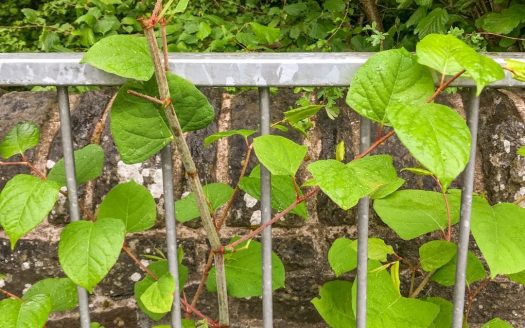When and how to spot Japanese Knotweed
Japanese knotweed is one of the world’s most invasive plant species, which is not uncommon in Lancaster and surrounding areas.
Invasive plant specialists suggest that around 4% of UK homes are affected by Japanese Knotweed.
Consequently, around 890,000 households across the country are suffering a reduction in the value of around £13,200 due to knotweed, which amounts to a staggering £11.8bn loss in the value of the nation’s homes
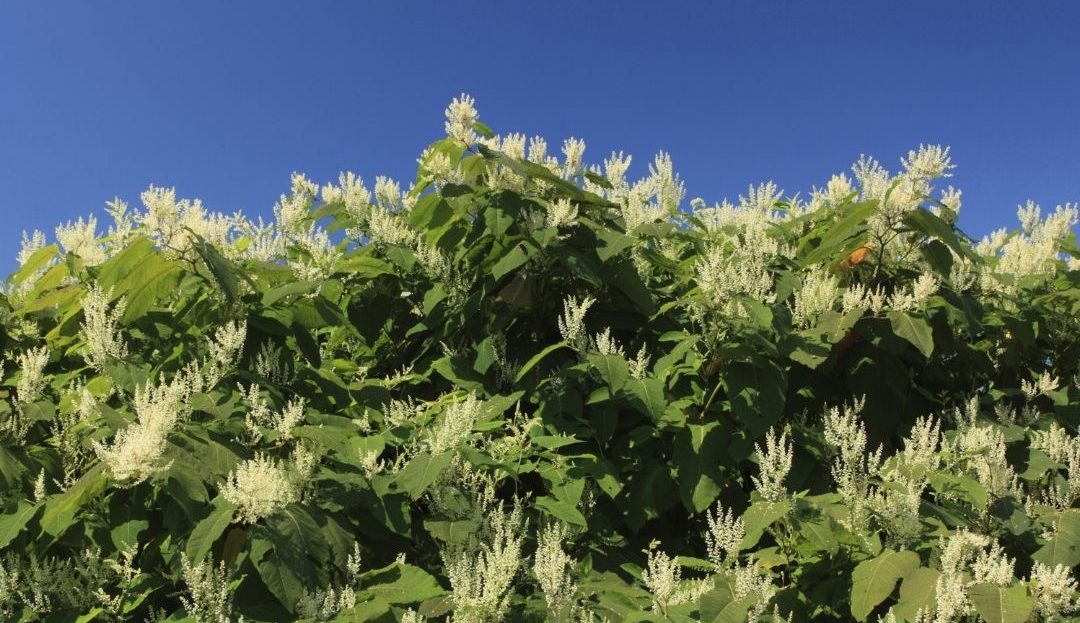
Why is it important to identify Japanese Knotweed?
This invasive plant is not only a sore sight in a garden but can also severely damage your property. Knotweed spreads through underground roots (known as rhizomes) that can weaken house foundations, and grow through the walls, drains, flood defences, and even chimneys!
On average, the presence of this plant can knock down the value of your house between 5-20%. Additionally, the plant can cause problems when selling, re-mortgaging, or insuring your property.
Knotweed is known for spreading fast, so it is very important to identify it as soon as possible.
When and how to look for Japanese Knotweed
The season of the plant’s growth starts in mid-March to April. If you have a keen eye look out for small reddish sprouts (similar to asparagus) in early spring. Later, the plant can grow up to 10 cm daily and it sprouts its ‘signature’ green shield-shaped leaves. From around August, the plant grows small white flowers. So, now it is the best time to look around your garden and try to spot it before it gets out of control.
In autumn the plant’s leaves go yellow and start wilting, leaving only brown brittle canes by the winter. In winter, the plant remains dormant with underground roots developing further.
See photos of Japanese Knotweed in various growing stages below.
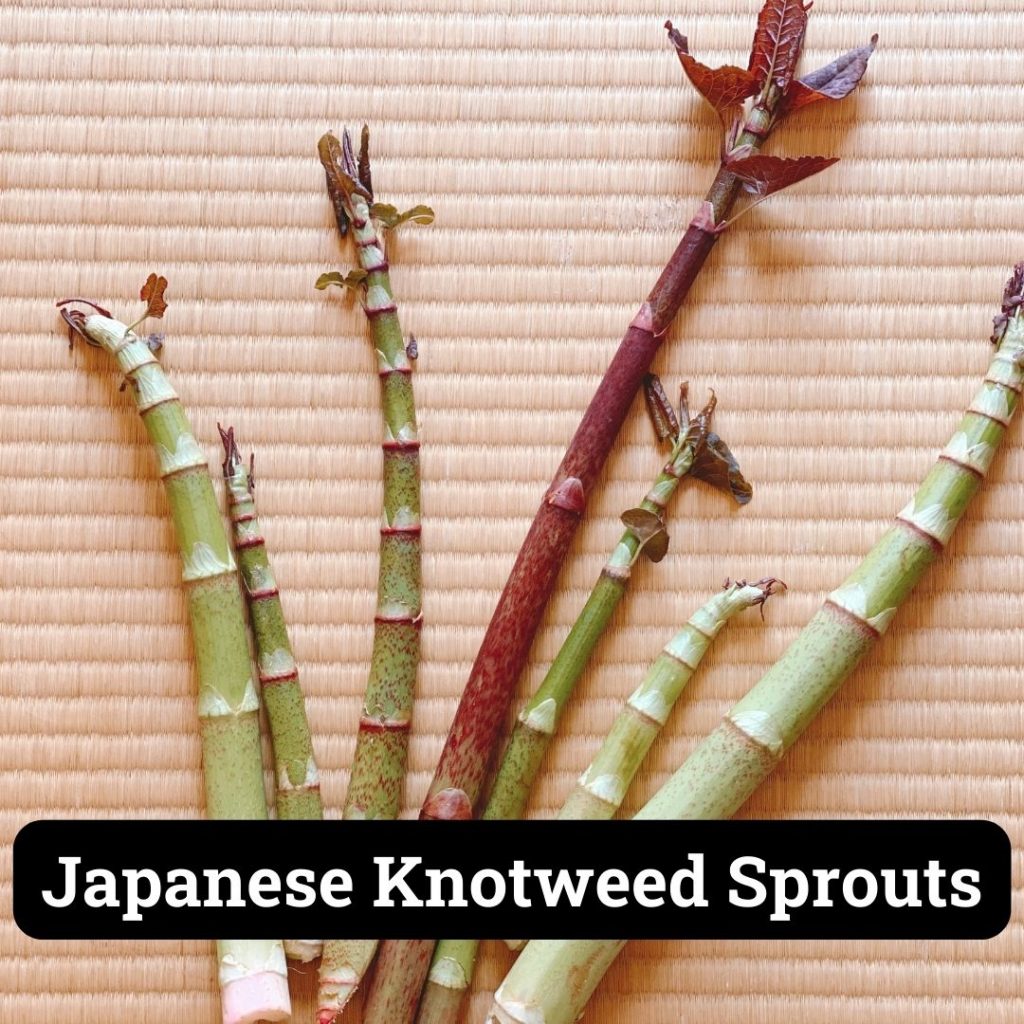
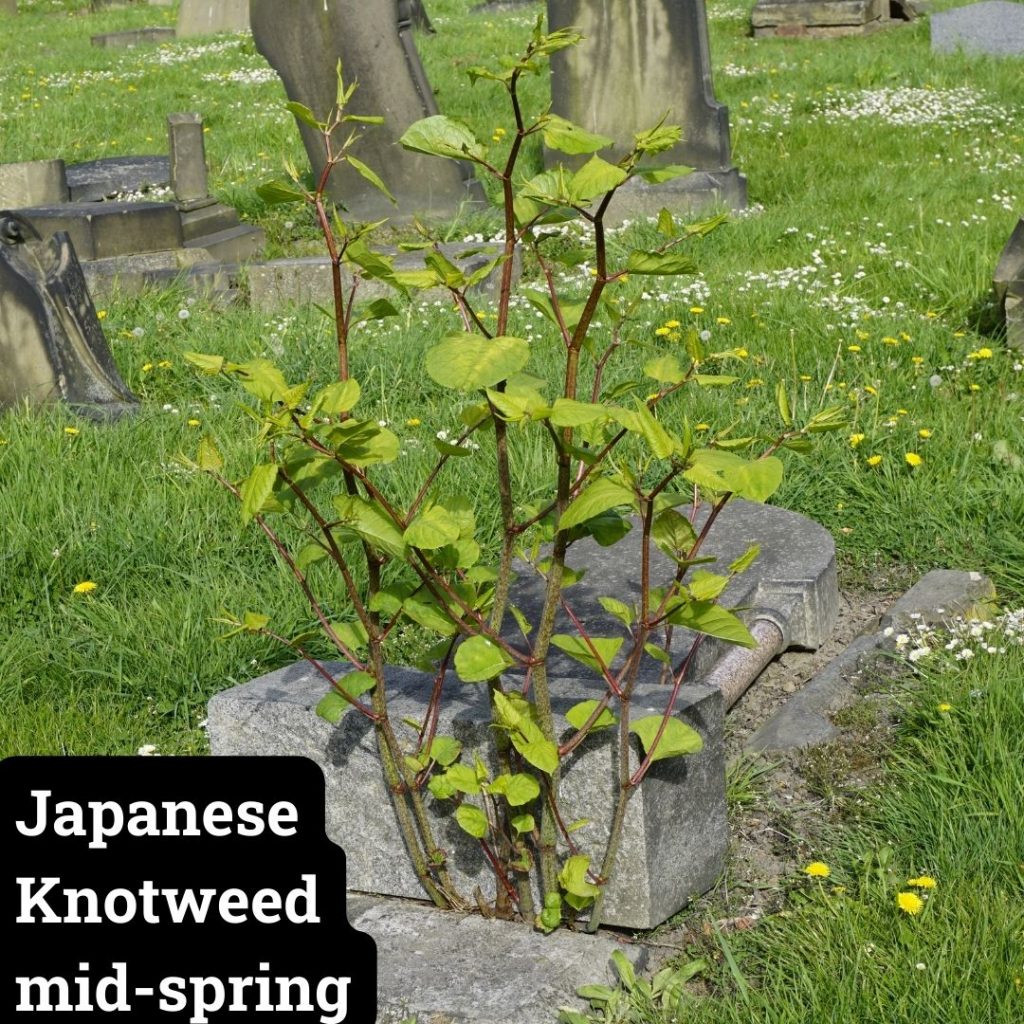
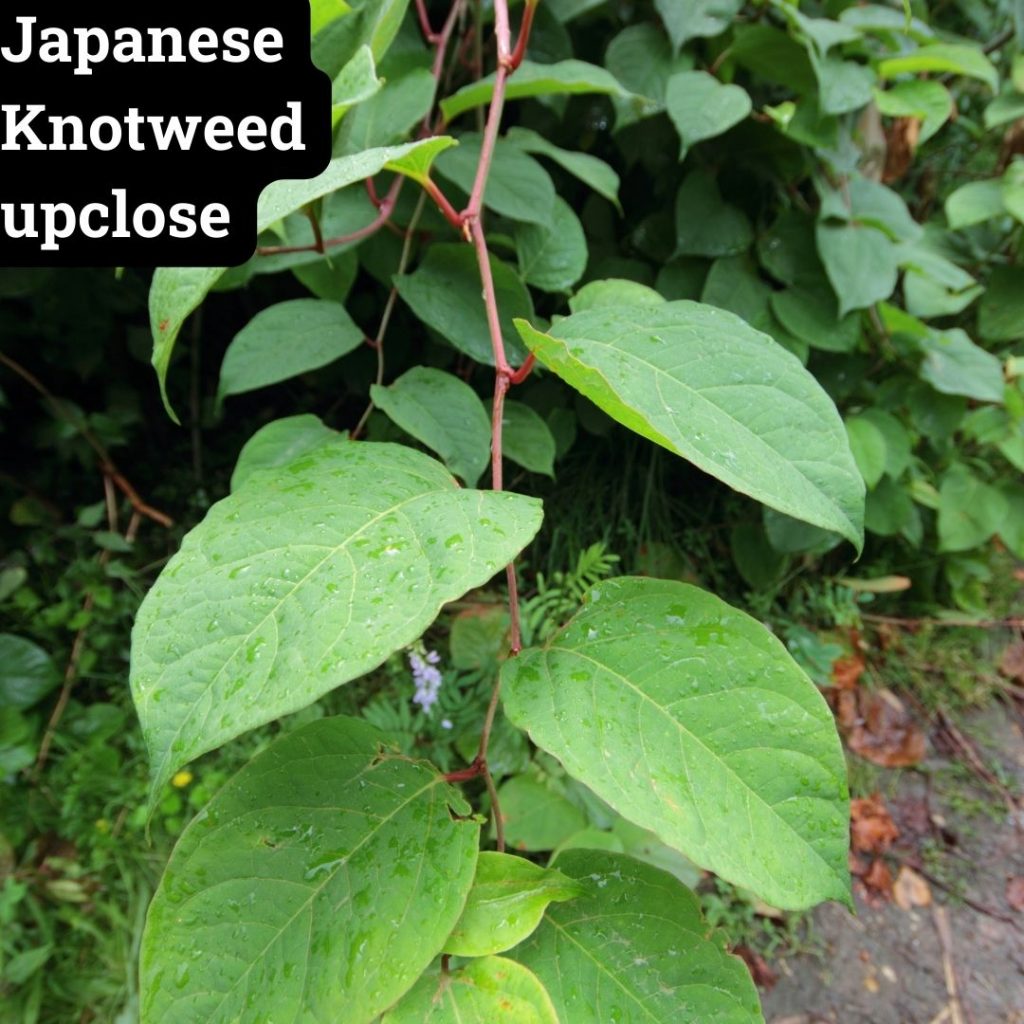
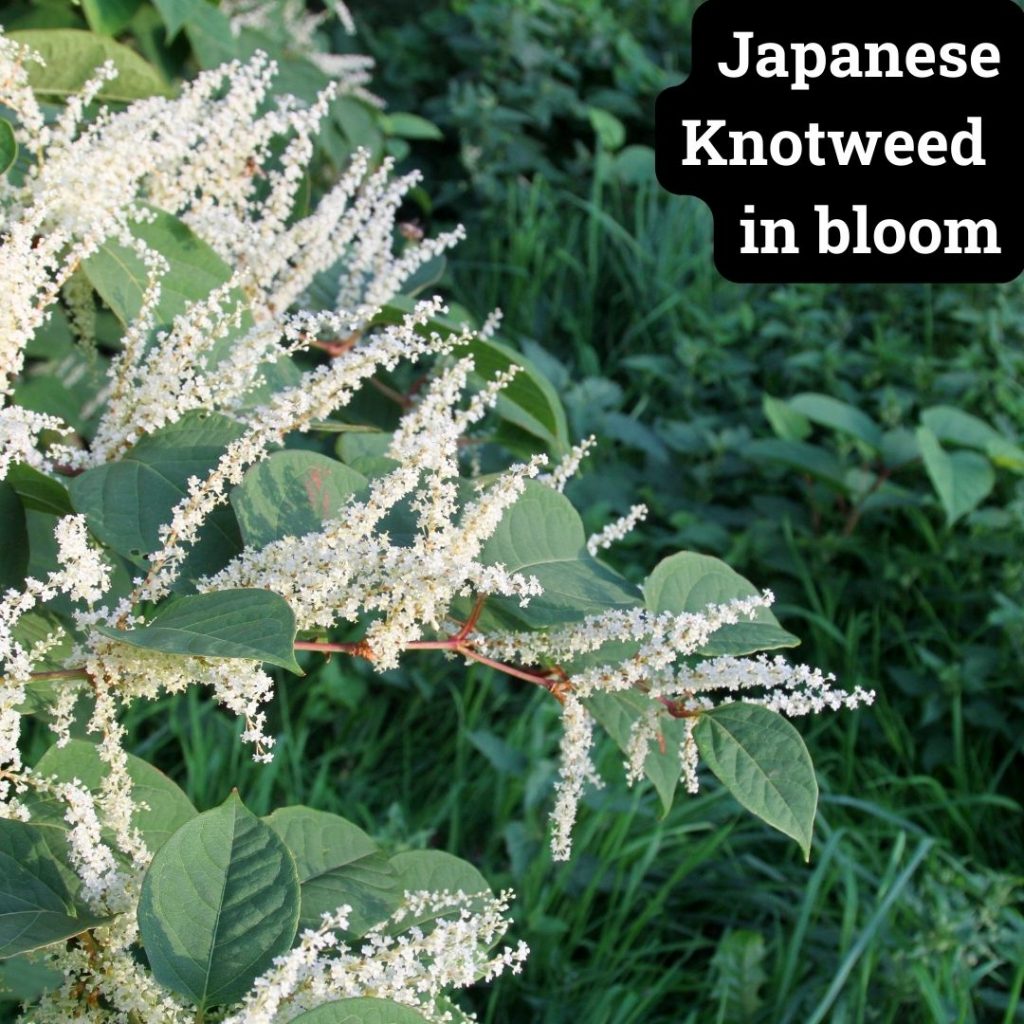
What to do if you suspect Japanese Knotweed in your garden
Before jumping to conclusions, check this handy knotweed identification guide. Also, a qualified RICS surveyor can help identify and confirm Japanese Knotweed growth. If the plant’s presence is confirmed, the surveyor will help you to get in touch with local specialists that can assist in eradicating the invasive species.
Buying a house with Japanese Knotweed
Estate agents are legally obliged to disclose the presence of this invasive species when listing a property. If a house you are considering buying has knotweed present, you should be aware of its severity. The best idea would be to check with a specialist or a surveyor to evaluate the situation.
